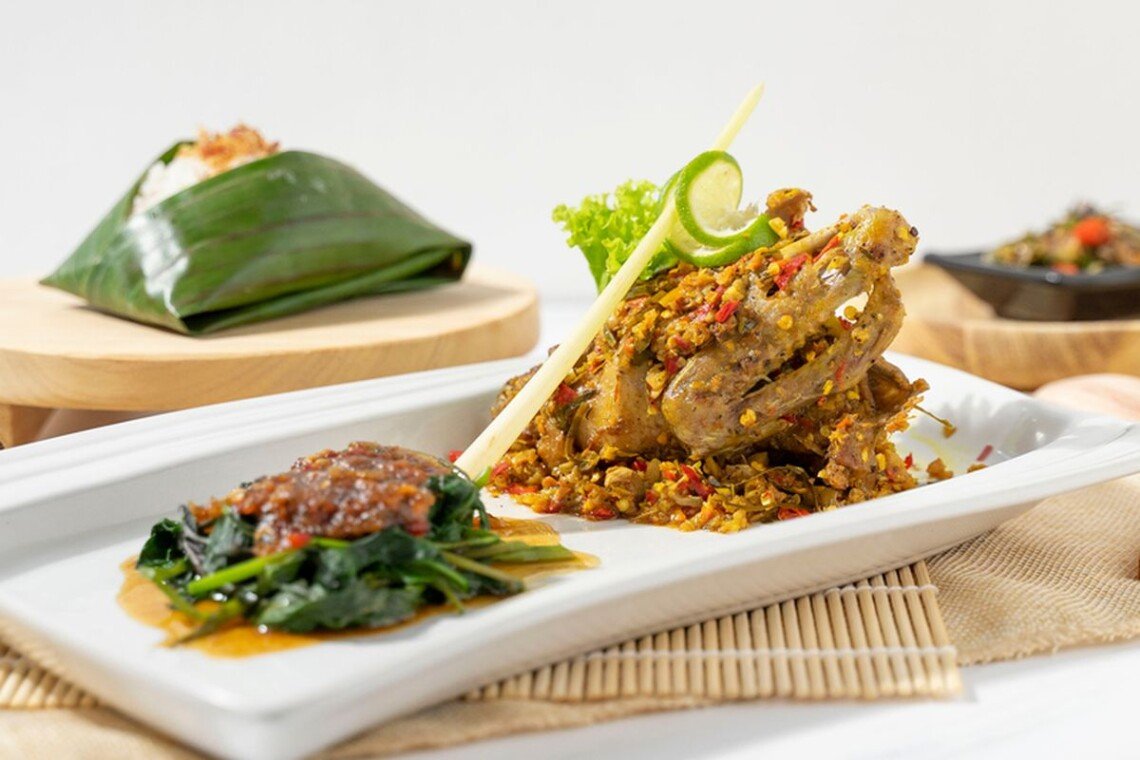Discovering Bali’s Culinary Treasures Through Authentic Cooking Experiences
Bali, the enchanting Island of the Gods, captivates visitors not only with its stunning natural beauty but also with its rich culinary heritage. Behind the emerald rice terraces and exotic beaches lies a treasure trove of culinary traditions passed down through generations for centuries. Today, travelers from around the world can immerse themselves in unforgettable experiences through cooking classes that teach the art of creating authentic Balinese dishes.
🌟 What Makes Balinese Cooking Classes So Special?
Living Cultural Heritage
Balinese cuisine transcends mere taste – it embodies the philosophy and spiritual beliefs of Hindu-Balinese society. Every dish carries deep ceremonial and spiritual significance. In traditional cooking classes, you don’t just learn cooking techniques; you gain insight into the cultural values embedded in every spice and cooking ritual.
A Holistic Experience Like No Other
Most Balinese cooking classes begin with a visit to traditional markets. Here, you’ll discover fresh local ingredients, from fiery bird’s eye chilies to fragrant kaffir lime leaves. The experience of shopping for ingredients while interacting with local vendors provides profound insights into the daily life of Balinese communities.
🥘 Iconic Dishes You’ll Master
Balinese Rendang: A Flavor Explosion
Unlike Padang rendang, Balinese rendang features unique characteristics with the use of base gede (Balinese spice paste) rich in aromatic spices like galangal, turmeric, candlenuts, and red chilies. In cooking classes, you’ll learn to cook beef until tender while ensuring the spices penetrate perfectly.
Bebek Betutu: Bali’s Culinary Masterpiece
This patience-requiring dish represents one of Bali’s signature specialties. Duck seasoned with complex spice blends is wrapped in leaves and slow-roasted for hours. Though the process is lengthy, the final result delivers extraordinary satisfaction.
Ayam Pelalah: A Refreshing Spicy Sensation
Pelalah is a distinctive Balinese dish combining shredded chicken with fresh sambal matah. The combination of bird’s eye chilies, shallots, lemongrass, and grated coconut creates a unique and refreshing flavor profile.
Lawar: Traditional Nutrient-Rich Salad
Lawar is a mixed dish of vegetables, grated coconut, and minced meat seasoned with base genep. Each region in Bali has different lawar variations, from white lawar to red lawar that incorporates fresh blood.
🏡 Types of Cooking Classes Available
Traditional Home Cooking Classes
Many Balinese families open their homes to travelers eager to learn cooking. This experience provides an intimate and personal atmosphere where you can interact directly with local families and understand cooking traditions passed down through generations.
Professional Classes at Resorts and Hotels
Luxury resorts in Bali offer cooking classes with complete facilities and professional chefs. Though more formal, these classes provide structured cooking techniques and certificates that serve as valuable mementos.
Organic Cooking Classes in Rice Fields
The farm-to-table concept is increasingly popular in Bali. Cooking classes in rice fields or organic gardens offer unique experiences where you can harvest ingredients yourself, from vegetables to spices.
🌿 Balinese Cooking Philosophy: Tri Hita Karana
Harmony with Nature
The Tri Hita Karana concept teaches the importance of balance between humans, nature, and God. In cooking context, this means using natural ingredients, respecting the cooking process, and expressing gratitude for the blessings received.
Rituals and Prayers in Cooking
Before cooking, Balinese people often perform small rituals with offerings and prayers. This isn’t merely tradition but a way to honor food ingredients and ask for blessings so the food becomes delicious and nutritious.
🛒 Adventures in Traditional Markets
Badung Market: Denpasar’s Culinary Heart
Bali’s oldest and largest market serves as a paradise for culinary enthusiasts. Here, you’ll find various spices and seasonings unique to Bali that are difficult to find elsewhere. The aroma of kencur, ginger, and turmeric creates an unforgettable sensory symphony.
Sukawati Market: Traditional Spice Center
This market is renowned for its quality traditional spices. Friendly vendors will gladly explain the uses of each spice and how to incorporate them into Balinese cuisine.
👨🍳 Learning from Local Master Chefs
Warung Owners
Don’t underestimate the knowledge of roadside warung owners. They are true repositories of Balinese culinary wisdom. Their secret recipes are often not found in any cookbook.
Professional Balinese Chefs
Several internationally acclaimed Balinese chefs now offer exclusive cooking classes. They combine traditional cooking techniques with modern touches, creating fresh interpretations of classic Balinese dishes.
🏆 Benefits of Taking Balinese Cooking Classes
Culinary Skills to Take Home
The cooking techniques learned can be applied at home. You’ll learn to make base gede, proper sautéing techniques, and secrets to achieving authentic flavors even with ingredients available in your home country.
Deep Cultural Understanding
Cooking serves as a window to understanding a society’s culture. Through cooking classes, you’ll comprehend Balinese values, traditions, and life philosophy in the most authentic way.
Networking and New Friendships
Cooking classes often attract travelers from various countries. This creates golden opportunities to forge new friendships and share culinary experiences from different cultures.
📍 Best Cooking Class Destinations in Bali
Ubud: Bali’s Culinary Heart
Ubud offers various cooking class options, from traditional to modern. The peaceful rural atmosphere surrounded by rice fields makes the cooking experience more memorable.
Sanur: Beachside Cooking Classes
Imagine learning to cook while enjoying beautiful beach views. Several cooking classes in Sanur offer this unique experience, combining culinary arts with natural beauty.
Canggu: Modern Twist on Tradition
As a popular millennial destination, Canggu offers cooking classes with more modern and Instagram-worthy approaches without losing traditional essence.
🎯 Tips for Choosing the Right Cooking Class
Consider Duration and Intensity
Cooking classes vary from short sessions (3-4 hours) to intensive full-day programs. Choose according to your time and commitment level.
Check the Menu Taught
Ensure the chosen class teaches dishes you genuinely want to learn. Some classes focus on specific dishes while others provide comprehensive overviews.
Read Reviews and Testimonials
Reviews from previous participants can provide realistic insights into class quality and the experience you’ll receive.
💰 Investment in Priceless Experience
Variable Price Range
Cooking class prices in Bali vary greatly, from economical options (IDR 200,000-500,000) to premium experiences (IDR 1,000,000-2,000,000). Price differences usually reflect facilities, duration, and experience exclusivity.
Value Received
Though it might seem expensive, the experience gained is invaluable. You don’t just learn cooking but also gain cultural experiences, networking opportunities, and unforgettable memories.
🌅 Preparation Before Taking Classes
Physical and Mental Condition
Traditional Balinese cooking requires stamina as many processes are done manually. Ensure you’re in good condition and ready for physical activity.
Comfortable Clothing
Wear comfortable clothes that you don’t mind getting dirty. Avoid white clothing as Balinese spices can leave difficult-to-remove stains.
Bring a Camera
Document every moment, from market shopping to final cooking results. These photos will become precious memories to share with friends and family.
🎁 Bringing Bali Home
Spices and Seasonings
Most cooking classes provide spice packages to take home. This allows you to practice what you’ve learned at home.
Written Recipes
Ensure you receive detailed written recipes. Some classes even provide special recipe books as souvenirs.
Video Tutorials
With smartphone technology, you can record cooking processes as references when practicing at home.
🌍 Positive Impact of Culinary Tourism
Local Economic Empowerment
Cooking classes help empower local communities economically, from farmers providing raw materials to families opening their homes for classes.
Cultural Preservation
By teaching traditional cuisine to tourists, Balinese communities help preserve this valuable cultural heritage for future generations.
Cultural Exchange
Interactions between tourists and locals create positive cultural exchanges that enrich both parties.
🔮 The Future of Balinese Culinary Tourism
Innovation in Tradition
Young Balinese chefs are beginning to experiment with traditional dishes, creating interesting fusions without losing original identity.
Technology in Learning
Some cooking classes are starting to integrate technology, such as mobile apps for recipes and video tutorials, making learning more interactive.
Sustainability and Eco-Tourism
The trend toward sustainable tourism has led many cooking classes to focus on organic ingredients and environmentally friendly practices.
🏁 Conclusion: More Than Just Cooking
Taking cooking classes in Bali is an investment in invaluable life experience. You don’t just learn to make delicious food but also understand the soul and culture of Balinese society. Every bite of food you create will transport you back to beautiful moments on the Island of the Gods.
This experience will change how you view food – from mere necessity to a medium for understanding culture, building relationships, and expressing creativity. When you return home and serve Balinese dishes to family and friends, you’re not just sharing food but also stories, culture, and unforgettable experiences.
Bali awaits to share its culinary secrets with you. Prepare for a flavor journey that will change your life forever!










Join The Discussion